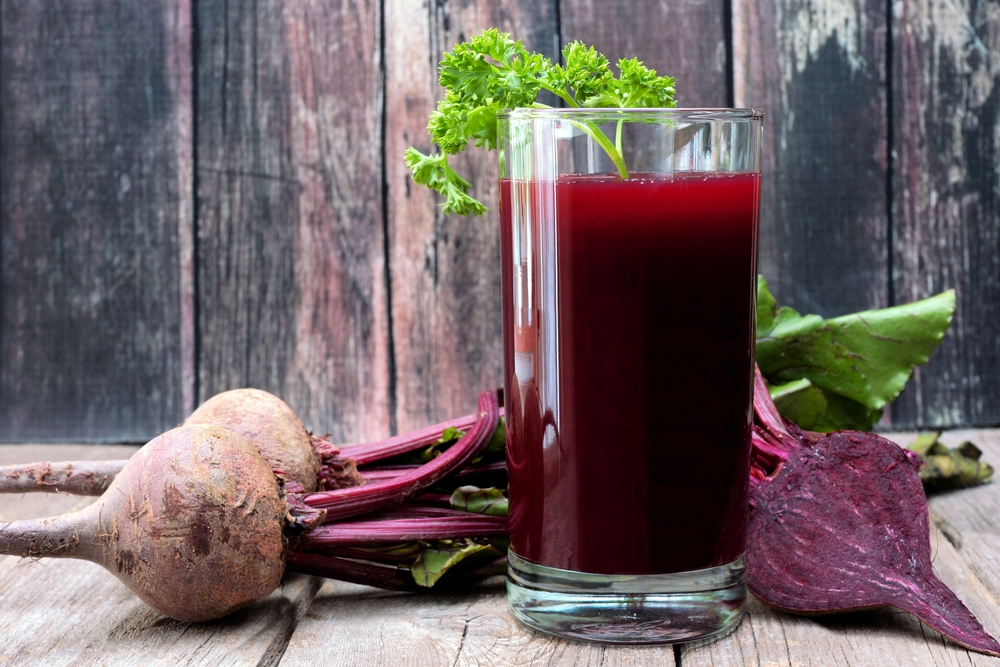Juice can be a delightful and invigorating means to ensure your body receives certain essential nutrients that may not be regularly incorporated into your daily diet. Not only is it a pleasurable experience for your taste buds, but it also provides a swift and convenient way to consume these vital nutrients when you’re on the move, especially on those hectic days. Among the myriad advantages of indulging in this beverage, there are specific types of juice that could potentially contribute to the deceleration of the aging process.
However, it’s crucial to distinguish between various types of juice. Many commercially available juices or fruit drinks essentially consist of fruit concentrate and added sugars. Conversely, there are authentic juices available that are entirely natural, devoid of added sugars or preservatives. These all-natural juices are the ones to seek out, particularly concerning healthy aging. This is imperative since sugar-laden beverages, like those masquerading as juice on store shelves, are linked to an increased risk of obesity, heart disease, type 2 diabetes, liver issues, and kidney problems.
The juices that are genuinely all-natural, composed of 100% fruits or vegetables, offer their distinct array of health benefits. In this context, we’ve compiled a list of juice types that contain specific antioxidants, vitamins, and minerals conducive to promoting healthy aging. Keep reading to delve deeper into how these beverages can contribute to an improved aging process. For further insights into maintaining your youthful vitality while nourishing your brain, explore the 4-Step Breakfast Routine designed to support cognitive health as you age.
1) Pomegranate juice
Pomegranates are a treasure trove of antioxidants, particularly polyphenols, which offer a range of health benefits. These antioxidants have the potential to reduce inflammation, combat cancer, and lower blood pressure levels. Beyond these advantages, pomegranates also exhibit a unique influence on the aging cells within your body.
As individuals reach the age of 50 and beyond, their cells often encounter challenges in effectively recycling mitochondria. This process has a direct impact on the strength of muscles. Additionally, if the body struggles to recycle mitochondria efficiently, they can accumulate, elevating the risk of severe conditions like Parkinson’s disease.
The encouraging news is that pomegranates contain a molecule that, when processed by your gut microbiome, transforms into a substance known as urolithin A. This compound plays a pivotal role in maintaining the health of your mitochondrial processes. It’s worth noting, however, that some individuals may possess gut flora that cannot convert this compound, rendering pomegranate juice less effective for them.
2) Carrot juice
Carrots contain numerous antioxidants that can improve your health as you age. For instance, carrots are rich in lutein, which is known to help improve eye and brain health. This orange produce is also rich in another antioxidant called beta carotene, which is an antioxidant that your body can use to turn into vitamin A.
But, beta carotene’s potential health benefits don’t stop there, as one study published in Cancer Epidemiology, Biomarkers & Prevention found that it may have the ability to help reduce the risk of prostate cancer in younger men.
3) Beet juice
Beetroot juice, whether it’s a taste you adore or find challenging, wields undeniable power when it comes to slowing down the aging process. An investigation conducted by Redox Biology uncovered that individuals who consumed beet juice exhibited higher levels of a specific type of bacteria known for its contributions to cognitive and vascular health, compared to those who consumed a placebo drink. Furthermore, those who partook in the beet juice experience observed a decrease in their blood pressure levels.
These remarkable outcomes are attributed to the substantial concentration of nitrates found in beets, which play a vital role in maintaining the health of your blood vessels and enhancing cognitive function as you age. These benefits extend to both cooked beets and raw beet juice, although research published in the Journal of Human Hypertension suggests that beet juice has a more pronounced impact compared to the cooked form of this root vegetable.
4) Pink grapefruit juice
Carotenoids are compounds that give fruits and vegetables their natural coloring, and as we mentioned above, carrots contain a type of carotenoid that helps slow aging. Pink grapefruits also hold these compounds, but they have one that is called lycopene.
Lycopene, which is also found in tomatoes and watermelon, is known to have numerous health properties and has even been found to improve the appearance of your skin. Research published in Food Science & Nutrition found that lycopene had “rejuvenating” effects on the skin of middle-aged participants.
Another study published in the American Journal of Nutrition concluded that lycopene can both lower LDL cholesterol (the bad kind) and raise HDL cholesterol levels (the good kind), which are important factors in supporting heart health. Managing your cholesterol is especially crucial as you age, since heart disease is the number one cause of mortality in America. So, if you’re a grapefruit fan, try a glass of this juice to slow aging.
5) Wheatgrass juice
It’s true, the taste of wheatgrass juice may not win any flavor awards, but its health benefits and anti-aging properties make it a worthwhile addition to your diet.
Despite its somewhat challenging taste, wheatgrass is packed with essential nutrients like vitamin C, vitamin E, and flavonoids—natural compounds commonly found in fruits and vegetables that have the potential to reduce the risk of various diseases.
Furthermore, wheatgrass boasts an exceptionally high chlorophyll content, the green pigment found in many plants. When consumed, chlorophyll has demonstrated antioxidant properties and chemoprotective abilities, safeguarding the body from the adverse effects of chemotherapy. This is achieved by reducing the bioavailability of carcinogens, substances that have the potential to trigger cancer, within the body.

